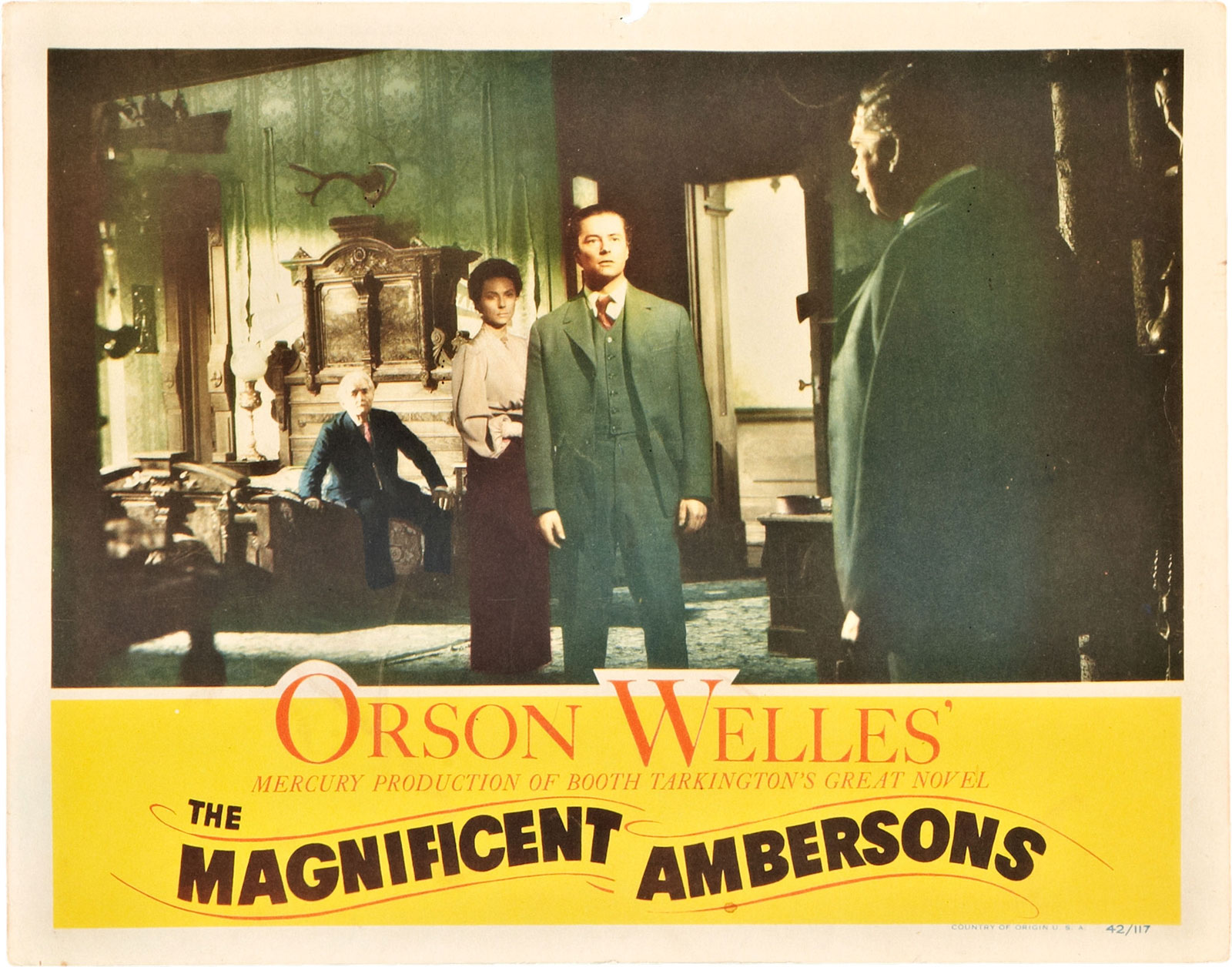
 This was Welles’ follow-up to Citizen Kane and although he didn’t have William Randolph Hearst out for blood trying to stop the film’s release, he did have his share of trouble when it came to getting this one into the theater. Wrested from his control, the film was cut extensively (from over two hours to a final running time of 88 minutes) and the ending was reworked and made upbeat (which Welles hated.) In the final tally, four directors, four writers, three editors and seven cinematographers had a hand in the finished product.
This was Welles’ follow-up to Citizen Kane and although he didn’t have William Randolph Hearst out for blood trying to stop the film’s release, he did have his share of trouble when it came to getting this one into the theater. Wrested from his control, the film was cut extensively (from over two hours to a final running time of 88 minutes) and the ending was reworked and made upbeat (which Welles hated.) In the final tally, four directors, four writers, three editors and seven cinematographers had a hand in the finished product.
That said, the film as it stands is an excellent effort. Possessing wit, heart and brains, The Magnificent Ambersons is an involving, intelligent movie that clicks on many of the same levels as its more decorated predecessor. Like Kane, it is both funny and tragic and features a perceptive (though less broad) examination of the idea of (and ideals of) America. Add to that excellent ensemble performances (especially Joseph Cotten, Agnes Moorehead and Tim Holt), wonderful cinematography and a strong helping of classic Welles touches and The Magnificent Ambersons comes out as a true Amercian classic.
Doesn’t sound like a bad way to spend a Monday night, does it?
This article was originally published in December 1999 in Boston's Weekly Dig (now digBoston.) It was my first article as the paper's film editor.